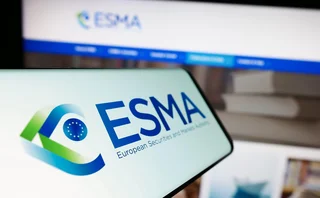
Editor's Letter

Hocus pocus
October always ushers in a magical feeling. It's the time when Asia is illuminated by the rich glow of the full moon during the Chinese mid-autumn festival, Diwali (the Indian festival of lights), Eid Al-Fitr (which marks the end of Ramadan) and good old Halloween. It's also the time when Asia Risk celebrates its own market heroes and wizards in the magazine's annual awards. As the science fiction writer Arthur Clarke once said: "Any sufficiently advanced technology is indistinguishable from magic."
The impressive range of derivatives structures presented by those looking to claim a prize in the seventh Asia Risk Awards was, as always, an eye-opener. This year, Deutsche Bank and UBS walk away with the grand prizes for Asia-Pacific, with the German firm scooping the derivatives house awards for both Asia excluding Japan and Japan, while the Swiss bank is named the top house for Australia. UBS also took the equity derivatives house award, the most sought-after prize among the asset-class categories this year. We would like to thank all those who took part in the awards for their time and effort.
Meanwhile, an interesting recent development in the region has been an increase in the use of securitisation by banks to transfer risk and gain capital relief on loan portfolios (see page 54). Activity has been driven by foreign banks such as Deutsche Bank and Standard Chartered - in fact, Standard Chartered's Start II collateralised loan obligations (CLO) wins the deal of the year award. Yet the fact remains that balance-sheet securitisations are still rarely seen among Asian banks outside Japan.
Political risk has also played its part in events this month. Credit default swap (CDS) spreads on Thai sovereign debt - one of the most liquid names in the region - have stabilised at around 50 basis points in the aftermath of the military coup on September 19 in Bangkok that ousted Thai prime minister Thaksin Shinawatra and brought in a new interim government.
The situation is worth a close watch, given that elections are not due to take place until the fourth quarter of 2007. The political transition is expected to have wide implications on the market, as dealers say the overhang of uncertainty over corporate credit ratings may see more Thai debt issuers coming to tap the market, and hence add much-needed liquidity to the region's CDS market (see page 58).
Only users who have a paid subscription or are part of a corporate subscription are able to print or copy content.
To access these options, along with all other subscription benefits, please contact info@risk.net or view our subscription options here: http://subscriptions.risk.net/subscribe
You are currently unable to print this content. Please contact info@risk.net to find out more.
You are currently unable to copy this content. Please contact info@risk.net to find out more.
Copyright Infopro Digital Limited. All rights reserved.
As outlined in our terms and conditions, https://www.infopro-digital.com/terms-and-conditions/subscriptions/ (point 2.4), printing is limited to a single copy.
If you would like to purchase additional rights please email info@risk.net
Copyright Infopro Digital Limited. All rights reserved.
You may share this content using our article tools. As outlined in our terms and conditions, https://www.infopro-digital.com/terms-and-conditions/subscriptions/ (clause 2.4), an Authorised User may only make one copy of the materials for their own personal use. You must also comply with the restrictions in clause 2.5.
If you would like to purchase additional rights please email info@risk.net
More on Regulation
Review of 2025: It’s the end of the world, and it feels fine
Markets proved resilient as Trump redefined US policies – but questions are piling up about 2026 and beyond
Hong Kong derivatives regime could drive more offshore booking
Industry warns new capital requirements for securities firms are higher than other jurisdictions
Will Iosco’s guidance solve pre-hedging puzzle?
Buy-siders doubt consent requirement will remove long-standing concerns
Responsible AI is about payoffs as much as principles
How one firm cut loan processing times and improved fraud detection without compromising on governance
Could one-off loan losses at US regional banks become systemic?
Investors bet Zions, Western Alliance are isolated problems, but credit risk managers are nervous
SEC poised to approve expansion of CME-FICC cross-margining
Agency’s new division heads moving swiftly on applications related to US Treasury clearing
ECB bank supervisors want top-down stress test that bites
Proposal would simplify capital structure with something similar to US stress capital buffer
Clearing houses warn Esma margin rules will stifle innovation
Changes in model confidence levels could still trip supervisory threshold even after relaxation in final RTS







